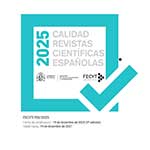THE ORGANIC LAW ON COMMUNICATIONS OF THE REPUBLIC OF EQUATOR: COMMUNICATIONS AS PUBLIC SERVICE AND SOCIALLY RESPONSIBLE COMMUNICATIONS
Abstract
The approval of the Organic Law on Communication (LOC) by the National Assembly of the
Republic of the Equator has been an object of controversy in the national and international
areas. The regulation of media lynching and the creation of a Superintendence of the
Information and Communication have generated doubts in some sectors, insofar as this
government agency has spoken about censorship since it is a state body with legal authority to
sanction. Nevertheless, regulators of the information market are common in democratic
countries, as Spain, where there exist the Councils for Audiovisual Media and practices of
regulation are combined with self-regulation so that the exercise of the informative activity fits
in the internal goods of the information, a constitutional fundamental right in most countries.
Such practices derive from article 19 of the Universal Declaration of Human Rights and article
13 of the American Convention on Human Rights. In this contribution we will try and explain
what could be behind these critiques of Equator´s controversial media law, analyzing its
juridical regime, the right to information, the freedom of expression and the text of the new
Organic Law of Communication, paying particular attention to the differences between
regulation and self-regulation and to the mechanisms to make it possible, as well as to the
case law of the Constitutional Spanish Court and the Inter-American Court of Human Rights.
Thus we will achieve strong criteria to interpret procedures such as media lynching and the
right to the information, establishing a parallelism with the Spanish legislation in this province.
Article download
License
In order to support the global exchange of knowledge, the journal Derecom. Derecho de la Comunicación is allowing unrestricted access to its content as from its publication in this electronic edition, and as such it is an open-access journal. The originals published in this journal are the property of the Complutense University of Madrid and any reproduction thereof in full or in part must cite the source. All content is distributed under a Creative Commons Attribution 4.0 use and distribution licence (CC BY 4.0). This circumstance must be expressly stated in these terms where necessary. You can view the summary and the complete legal text of the licence.







